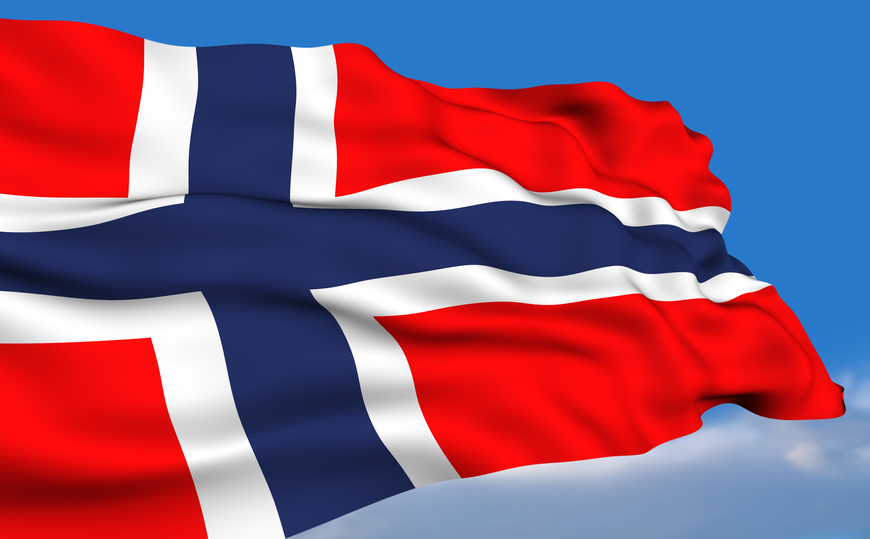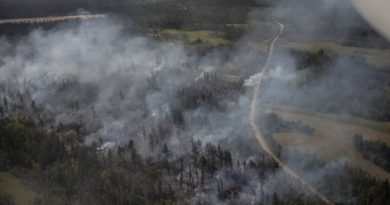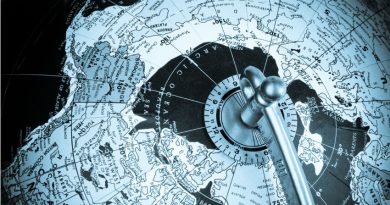Norway ambassador visits Alaska to talk climate, Russia and, yes, Norwegian dog mushing success

Norway’s ambassador to the United States has been in Alaska recently.
Anniken Krutnes, Norway’s first female ambassador to the U.S., was in Anchorage meeting with state leaders to discuss shared interests. She also met with members of the local Norwegian community and spoke at the Anchorage Museum as a guest of the Alaska World Affairs Council.
Krutnes says her country’s strong alliance with the United States, and its position in the Arctic, mean Alaska and Norway have a lot in common.
The following transcript has been lightly edited for clarity.
Anniken Krutnes: We’ve been talking about climate change which is, of course, a huge issue for all of us. And at the same time, we’ve also been talking about how we can have a sustainable economy in the Arctic. We want the Arctic to be sustainable — economically, socially and environmentally. And we have to be able to do all of that.
Casey Grove: In what ways can Alaska and Norway cooperate on that?
AK: It’s important to remember that climate change happens much quicker in the Arctic than in the rest of the world. But the reason for the climate change is emissions that come from the rest of the world. So we cannot in the Arctic fix climate change by changing only our behavior, climate change is a global problem. And it has to be fixed globally, because the emissions come from the entire world, not only the Arctic. Everyone on this planet, we have to try to make our carbon footprint as little as possible when we have any activity. But that is actually not so different from the Arctic, as for the rest of the world.
CG: Are there specific initiatives that Norway would like to see the United States sign on to toward those goals?
AK: Well we were, of course, pleased to see that you came back to the Paris Agreement. That is hugely important. And the Arctic Council has an initiative to report on the emissions of methane and black carbon. And the U.S. has now committed to report on that. And that is, of course, also very, very important, especially for the Arctic.
CG: In general, as far as diplomatic concerns, have things improved with this new presidency from Norway’s perspective?
AK: Norway has a very strong relationship with the U.S. and it goes centuries back. And today, I met the Norwegian community. And I was actually surprised by how many Norwegians are here in Alaska, and our relations go way back, and they are very solid. And we cooperate well with any administration that would be in the White House. The core of our relationship is the security policy, and we’re both founding members of NATO. And we have an excellent relationship with the U.S., whatever the administration looks like. With this administration, we also have some important cooperation on the climate issue, which, of course, we’re very happy for that. And we also discuss other global issues with the new administration, such as global health problems.
CG: Speaking of security issues and NATO, are there shared concerns between the two countries about Russia’s expansion in the Arctic?
AK: We see military buildup on the Russian side. And of course, we have to keep an eye on that. I would say that the Arctic region is still a peaceful and prosperous and predictable region. And it is important that we keep it like that. And I think you have three fundamental pillars for keeping it like that. And the first one is respect for international law. The Arctic is governed by international law, especially the Law of the Sea. And then the second one is international cooperation. And we have that, especially in the Arctic Council. And the third one is that we are able to manage the resources in a sustainable way. And so far, this has worked out well.
CG: This is a completely different question, but have you been aware of Norwegian dog mushers’ success in races like the Iditarod here in Alaska? What do you think about that?
AK: That’s a great question. I think us and Alaska have a lot in common. We like the outdoor life. We’re tough people. We’re able to deal with the cold weather and the dark and I’m not surprised that Norwegians win the race.
CG: Unfortunately for the Alaskans, nobody is surprised that they keep winning
AK: We could also talk about cross-country skiing or ski jumping, if you like. We share a lot of the same interests.
CG: I was going to ask you who you thought were better skiers, the Alaskans or the Norwegians? But I think I know what you would say.
AK: I heard you have a lot of slopes here and that you do a lot of cross-country skiing. And I think especially now during the pandemic, when our possibilities to meet indoors have been limited, I think outdoor life is really a relief for many of us. To meet outdoors and go hiking together. That’s a good opportunity that we have.
Related stories from around the North:
Canada: Liberal minority gov ensures continuity, says Quebec Inuit org, but federal riding boundary ongoing concern, Eye on the Arctic
Norway:Norway gets new government as voters make a forceful left turn, The Independent Barents Observer
Russia: Crushing victory for United Russia, but in one Arctic region, Putin’s party is dealt a blow, The Independent Barents Observer
United States: Putin, Biden talk Northern Sea Route, The Independent Barents Observer



